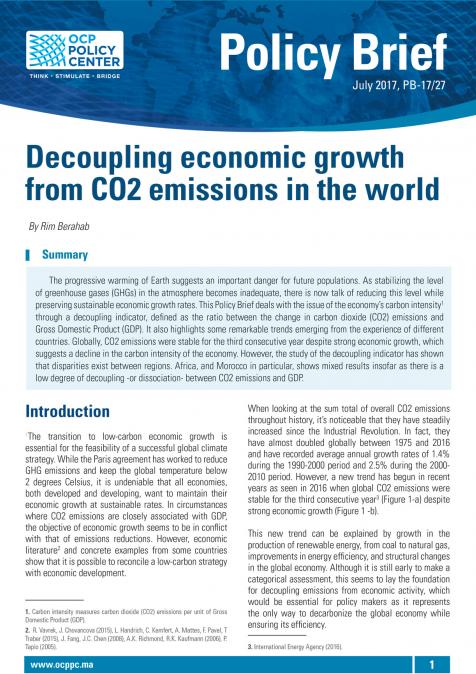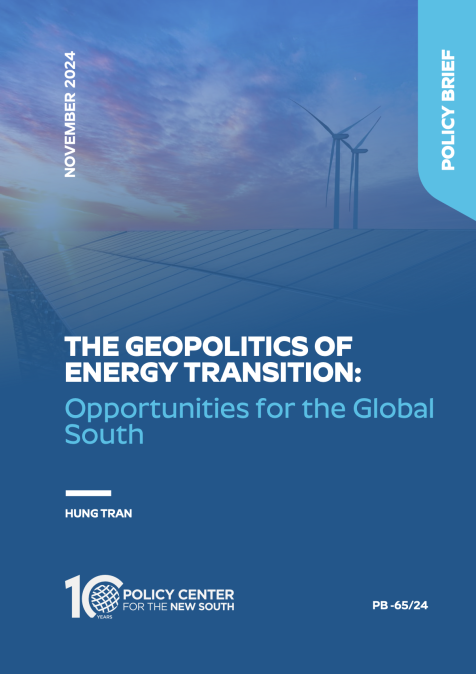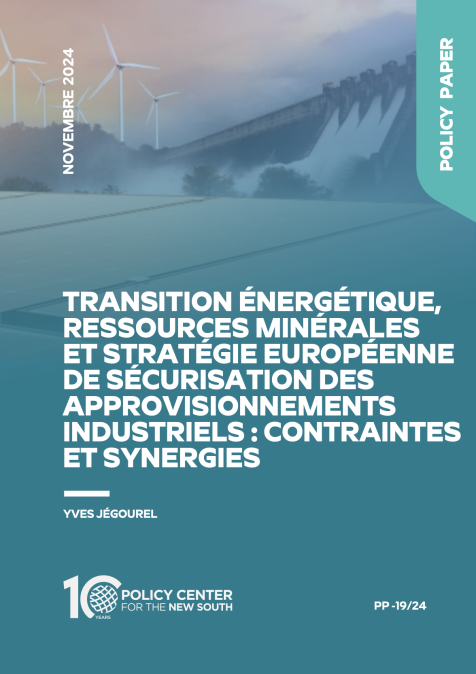Publications /
Policy Brief
The progressive warming of Earth suggests an important danger for future populations. As stabilizing the level of greenhouse gases (GHGs) in the atmosphere becomes inadequate, there is now talk of reducing this level while preserving sustainable economic growth rates. This Policy Brief deals with the issue of the economy’s carbon intensity1 through a decoupling indicator, defined as the ratio between the change in carbon dioxide (CO2) emissions and Gross Domestic Product (GDP). It also highlights some remarkable trends emerging from the experience of different countries. Globally, CO2 emissions were stable for the third consecutive year despite strong economic growth, which suggests a decline in the carbon intensity of the economy. However, the study of the decoupling indicator has shown that disparities exist between regions. Africa, and Morocco in particular, shows mixed results insofar as there is a low degree of decoupling -or dissociation- between CO2 emissions and GDP.







